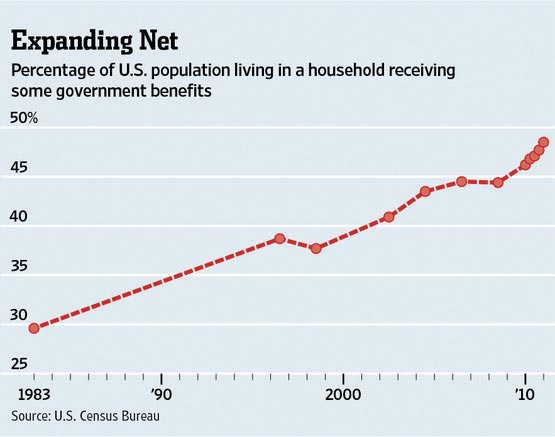One of the most-asked questions of this ministry is “Where is America in Bible prophecy?” Many good Bible commentators believe the United States is referenced in Ezekiel 39:6...
And I will send a fire on Magog, and among them that dwell carelessly in the isles: and they shall know that I am the LORD.
Ezekiel 39:6
This verse has caused much controversy among Biblical scholars over the centuries. The term “send fire” [shaw•lakh aysh] is a Hebrew expression for judgment (cf. Amos 1:12; Hosea 8:14, Ezekiel 21:3). This judgment from Yahweh will be a universal proof of His power. It is seen to be an eternal guarantee of Israel’s deliverance.
“Magog” is the people or country of Gog, which most commentators take to mean Russia.1 The term “isles” is also translated “coastlines,” implying the “farther reaches of the known world.” Some commentators have taken this to mean the western coastlands of Asia Minor (modern-day Turkey). This doesn’t seem to fit; while some distance from Israel, Turkey is not that far. Other commentators have taken the term to mean the lands of Tarshish [British Isles].2
Today, however, a different interpretation is being studied. Many still think of Magog as Russia and “fire” means a literal fire, possibly a nuclear exchange. The provocative interpretation is for “coastlines” [isles] to be the United States.
Other equally good scholars disagree. They see the United States mentioned in prophecy, but as a “type” in Isaiah 5. Chuck Missler believes that in Isaiah 5 there are six “woes” pronounced upon the unfaithful nation:
- Materialism (Isa 5:8-10);
- Hedonism (Isa 5:11-17);
- Flaunting Sin (Isa 5:18-19);
- Relativism (Isa 5:20);
- Denial of the Word of God (Isa 5:2); and,
- Lack of Justice (Isa 5:22-23). 3
Today’s United States can certainly fit this type. Whichever interpretation (if either) is correct, it does beg the question, “Where is the United States in Biblical prophecy?”
One would think that if the United States was the most powerful nation in the world, it would join the empires of Babylon, Persia, Greece, and Rome and warrant mention in the Scriptures. But the United States is not given the same prominence. Why?
The answer to this question may be very simple. It could be that in the end times, the United States has ceased to be a world power. It is irrelevant. If this is true, the United States will no longer be a world power because it chooses to be. After twenty years of being the only superpower in a unipolar world, the United States is in a position to decide unilaterally if it is to step back from the world stage or to stay engaged.
A Reluctant Hegemon
President Obama was right in April 2010 when he said, “…whether we like it or not, we remain a dominant military superpower.”4 While many took that as a statement of the Administration’s dis-taste for being perceived as more powerful than any other country, it can also be seen as a testimony to the American character.
Unlike other world powers, the United States did not choose to become an empire. Alexander the Great fell on his bed and wept because there were no more worlds to conquer.5 Rome was always looking to secure the land around them for “as far as the eye could see.” The problem was that once you got as far out as you could see, you could always see farther.6 All the great European Powers (including Imperial Russia and the Soviet Union) set out to become the global hegemon (leading nation). The United States came to it inadvertently.
While it is true that the United States was very aggressive in expanding its territory in the early days of the country, it did so primarily to secure its borders. It sought to:
1) Gain control of the Missouri, Ohio, and Mississippi River Basin: This was done by revolution, buying the land (the Louisiana Purchase), exploration (e.g., Lewis and Clark Expedition), and wars of conquest or intimidation (primarily with Mexico, Spain, and to a certain extent, Canada).
2) Control water access to the ports of entry: The Revolutionary War could not have lasted as long as it did had not the British blockaded the American ports—New York, Philadelphia, and Boston to name a few. This stopped the flow of goods out of the country and war material into it. Had the French not gained control of the Port of Yorktown, denying the British Army under the command of General Cornwallis an exit route, the War would not have effectively ended then. Had the British captured New Orleans in the War of 1812, it would have put the entire agricultural trade of the United States at risk.
While the United States did make forays into other parts of the world (e.g., Hawaii and the Philippines), it was never considered a world power until the 20th Century.
The United States only became a recognized world economic and military power after two World Wars. The country that Abraham Lincoln called God’s “almost chosen people” 7 did not enter the war in Europe in 1941 in order to become a world power. In fact, the American public only wanted to go to war with Japan after we were attacked.
Until Japan’s ally, Germany, declared war on the U.S. the American people still did not want to have anything to do with yet another European War. Hitler’s declaration of war gave President Roosevelt the political cover he needed to concentrate on what was perceived as the greater threat to civilization (Germany) and hold Japan in abeyance until later.
The American rise to prominence after World War II was the inevitable conclusion to the conflict.
The Cost of War
At the end of World War II, most of the industrial world was in shambles. The war took more than 50 million lives—more civilians than combatants. According to historian William Henry Chamberlin:
About twenty out of every one hundred residences in Germany were destroyed. Two and a quarter million homes were destroyed in Japan and 460,000 in Great Britain. Every fifth Greek was left homeless and 28,000 homes in Rotterdam were obliterated.
In Germany, bombing and shelling had produced 5 billion cubic yards of rubble (see photo on page 24).
The war’s direct cost in monetary terms was $4 trillion in 1945 dollars, estimated at $48 trillion today. Isolated by two oceans and late entering the war, the United States suffered less than ten percent of the total monetary cost and less than one percent of fatalities from all causes.8
The U.S. industrial capability was unscathed and it had not only a large, healthy returning male workforce, but also a newly trained, highly capable female workforce. The United States was the only industrialized country left that could manufacture the material necessary to rebuild an entire planet.

The Consequences of War
At the end of the war, the world balance of power had shifted. Britain, France, Germany, and Japan ceased to be great powers in the traditional military sense, leaving only the United States and the Soviet Union. The Soviet Union was a military power, but could not match the United States in industrial capability. The ravages of war, combined with the Communist system, kept the Soviet Union from projecting power to the same degree as the United States. While still a formidable power militarily, Russia has been described as “…a third world country with a big army.”9
It was the United States that emerged from World War II as a country unique in history: an accidental hegemon. The United States became a world leader in a bipolar world, and with the fall of the Soviet Union, its current undisputed leader. Given its history of post-war isolationism up to the start of World War II, it was a reluctant one.
A Christian Nation
Up through World War II, it was a given that the United States was a country founded on Christian values. In fact, the three branches of government were patterned after the Biblical principles found in the Book of Isaiah:10 “For the LORD is our judge (establishing the judiciary branch); the LORD is our lawgiver (establishing the legislative branch); The LORD is our king; he will save us” (establishing the executive branch).
The American Revolution was unique in history, in that it was founded in a Christian-based ideal on the rights and obligations of Man. These Christian values kept the American Revolution from going the way of the French, Russian, and Iranian Revolutions. The American Revolution was able to make the transition from a revolution to a democracy.
After the war, King George III asked the American painter, Benjamin West, what Washington would do after winning independence. West re-plied, “They say he will return to his farm.” “If he does that,” the King replied, “he will be the greatest man in the world.”11
Gunning Bedford, Jr. a signer of the Constitution, said of him:
To the character of hero and patriot, this good man [George Washington] added that of Christian. All his public communications breathe a pure spirit of piety, a resignation to the will of heaven and a firm reliance upon the providence of God.… Al-though the greatest man upon earth, he disdained not to humble himself before his God, and to trust in the mercies of Christ.
Washington knew to put the fate of this new country in the hands of God, rather than to trust its future to his own devices.
Beginning in the 1960s the self-perception of the United States began to change. A New Liberalism began to take shape. Where Classical Liberalism was defined as maximizing individual liberty and helping others succeed, the New Liberalism held that truth was relative, individual liberty was selfish, and that helping another succeed was the job of the State.
The New Liberalism
This New Liberalism also posits that America is corrupt, and since it is a Christian nation, Christianity is corrupt as well. The belief is that Christian values are flawed and that American Exceptionalism is a myth. Since the republican system of government and national values are no better than anyone else’s, the United States is in no position to espouse its values to other nations in the world. It has no moral ground to justify its position of world leader-ship.
This retreat from world leadership has its price. The United States has pulled back from space and grounded its shuttle fleet. Budget increases are being directed toward entitlement programs and defense appropriations are asked to make the “hard choices.”
These fiscal choices are having a ripple effect around the world. Having the United States’ defense shield protecting them has allowed many countries, primarily in Europe, free to spend their money on social programs since they did not have to devote a larger share to defense.

If the United States is to pull back from its role as “the World’s Cop” as Colin Powell once put it, who will fill the void? In today’s world some of the United States staunchest allies are those countries that were under the old Soviet sphere of influence, since they experienced the alternative to Western-style democracy.
The British historian Alexander Tyler once wrote that throughout history, nations go through a cycle:
...from bondage to spiritual faith; from spiritual faith to great courage; from courage to liberty; from liberty to abundance; from abundance to complacency; from complacency to apathy; from apathy to dependency; from dependence back again into bondage.12
The United States is now moving from apathy into dependence. Nearly 50% of households in the United States are now receiving some sort of government assistance.13 The tragedy is that many are trapped in that condition. The system is rigged so that there are huge barriers to getting off “the dole” once they are on it.
The next step for the United States is bond-age. But this is not a future that is inevitable. The United States is not like the other great powers that faced a decline that could not be stopped. The problems the United States face are not insurmountable.
Is the United States (and the world) heading into a storm? Obviously, the answer is yes. The country and the world are heading towards a major economic adjustment. It is mathematically impossible for major disruptions not to occur. The country is running up an unsustainable debt with no end in sight. Cities (and soon entire states) are declaring bankruptcy or defaulting on their obligations, people nearing the end of their working life are finding that the retirement income they counted on does not exist. The government (local, state and federal) has spent it.
While these obstacles are formidable, they are not final. We can reverse this trend. It will take “shared sacrifice,” but it can be fixed.
The looming energy crisis can be mitigated. A full two thirds of our trade imbalance comes from imported oil. Major oil reserves in the northern United States, southern Canada and Arc-tic regions, enough to last at least another fifty years, can be exploited if only we are allowed to tap into them. The 30-year ban on new nuclear power plants can be reversed.
Government spending can be brought under control. There is no reason to perpetuate the deficits being accrued every year. The government cannot and should not be perpetuating a massive expansion of social programs, threatening our way of life.
The United States is still strong, despite what pundits may say. Even in the face of massive debts and expansion of the money supply, the government only has to promise to pay 3.1% on 30-year treasury bonds. The world still has more faith in the economy of the United States than any Eurozone economy or the economy of China.
Some analysts say that the “American Century” has just begun rather than passed. They mark the start of the American Century at 1980. This was the year that transpacific ocean trade equaled transatlantic trade and the United States is the only country in the world able to take full advantage of this. The country still has many strengths, but it is up to its people to nurture those strengths. So, what can be done?
The Path Forward
The United States has to go back to its core values. It has to put God back into the public discourse. The “Separation of Church and State” needs to be seen for what it is: “Freedom of Religion” rather than “Freedom from Religion.”
Many people are surprised to learn that the United States Capitol once served as a church building. Congress authorized its use as such even before they officially moved into the building. This practice lasted until well after the Civil War. It is interesting to note that the practice was approved by Thomas Jefferson when he was Vice President (President of the Senate). This was the same man people will use to bolster their demand to keep God and Government separate.
A National Revival
The country does not need another Jonah. There are many Jonahs warning against confusing God’s purposes with national agendas. What is needed is another King of Nineveh! Leaders need to be elected that will return to those values and The One who made the country great. There needs to be a national revival. Let us pray it is not too late.
Notes:
- Missler, Chuck.The Book of Ezekiel. Expositional Bible Study, Coeur d’Alene, ID; Koinonia House, 2008
- Leslie C. Allen, vol.29, Word Biblical Commentary: Ezekiel 20-48, Word Biblical Commentary (Dallas: Word, Incorporated,2002), 207.
- Missler, Chuck. “The Geopolitical Landscape of the Middle East.” The Geopolitical Landscape of the Middle East. May 01, 2003. http://www.khouse.org/articles/2003/465/print/ (accessed October 12, 2011).
- http://www.youtube.com/watch?v=ZEvH_f9VADA
- Plutarch.“On Tranqulity of Mind.” In Morals, by Plutarch. 120 A.D.
- Duncan, Michael William. “The Seven Kings of Rome.” In The History of Rome. Podcast , 2001.
- Johnson, Paul . “The Almost-Chosen People.” First Things and the Institute on Religion and Public Life. Houston: American Heritage Education
Foundation, 2006. 17-22. - http://www.emayzine.com/lectures/WWII.html
- Maria Aronson,commercial attache at the U.S. Embassy in Moscow, http://multinationalmonitor.org /hyper/issues/1990/09/mayer.html
- Isaiah 33:22, KJV
- "The Man Who Would Not Be King" http://www.cato.org/pub_display.php?pub_id=5593
- Missler, Chuck. Prophets to the Southern Kingdom. Expositional Bible Study, Coeur d’Alene, ID: Koinonia House, 2010.
- Nearly Half of U.S.Lives in Household Receiving Government Benefit, http://blogs.wsj.com/economics/2011/10/05/nearly-half-ofhouseholds-receive-some-government-benefit/





